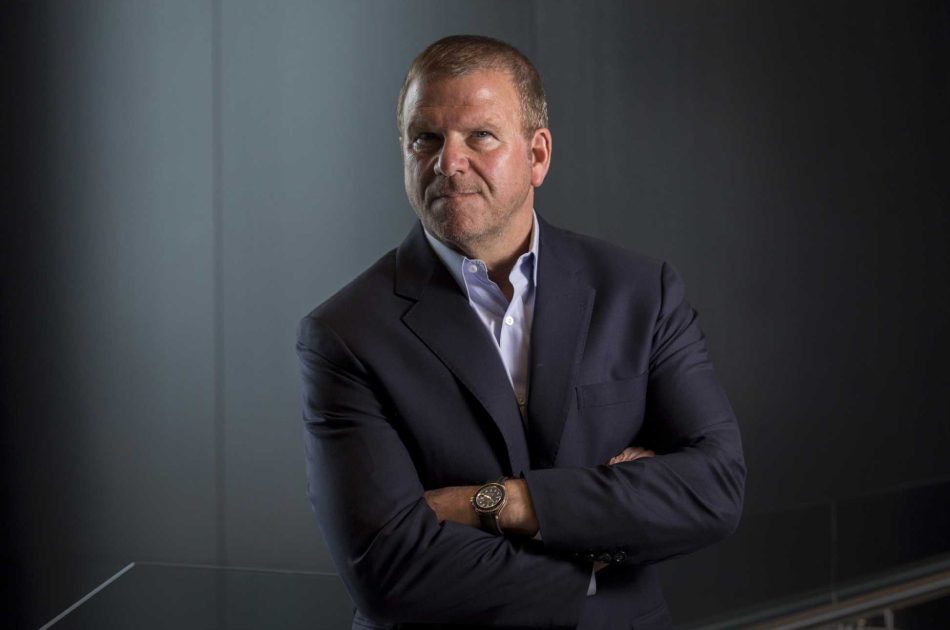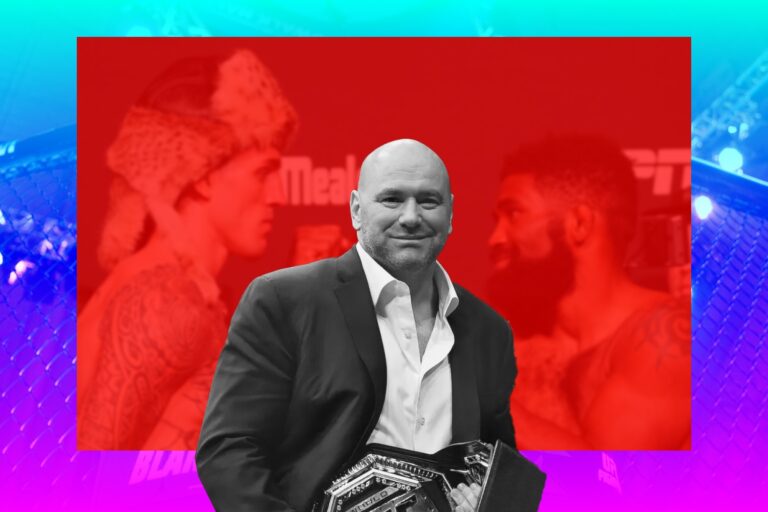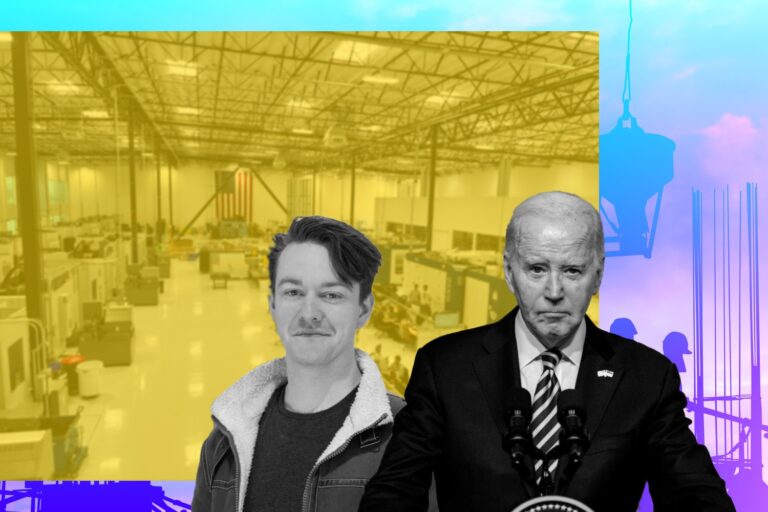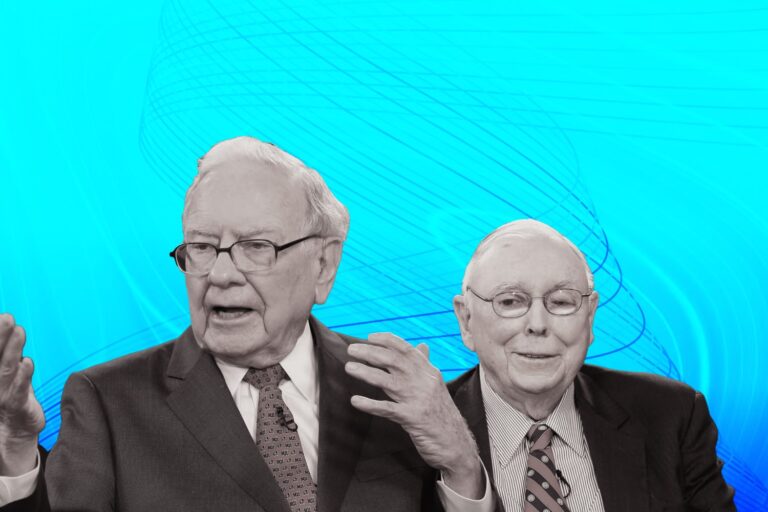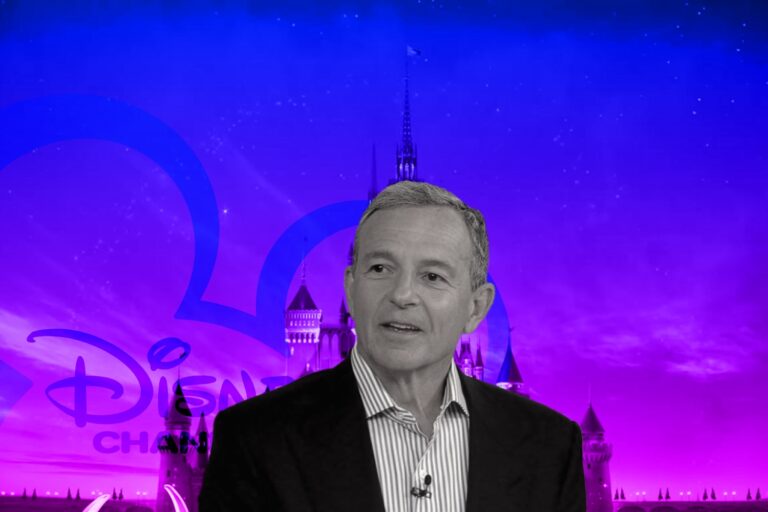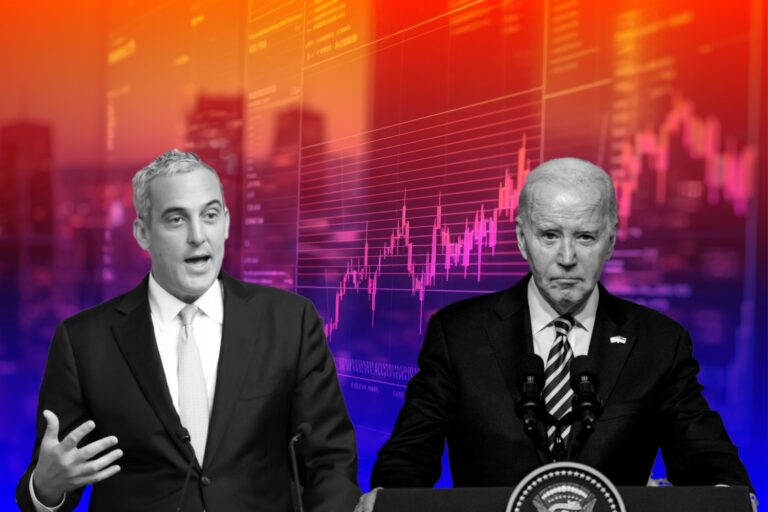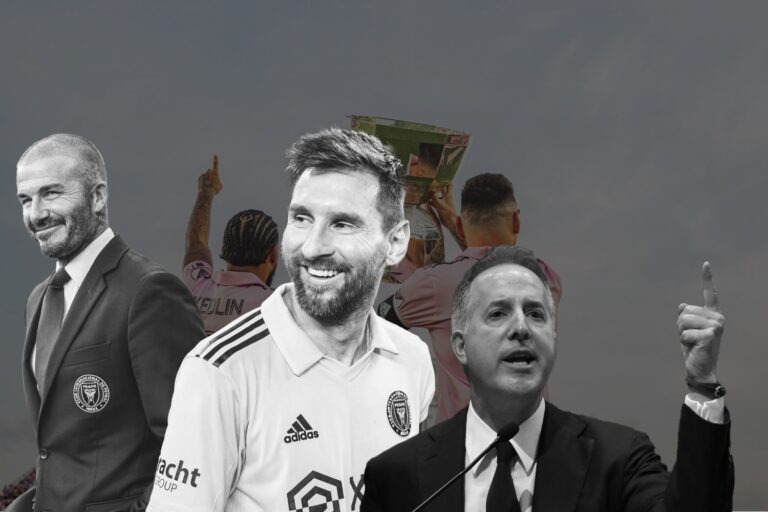Weathering the Business Pitfalls with Tilman Fertitta’s Groundbreaking Story
Tilman Joseph Fertitta is an American billionaire entrepreneur and television personality. He is the chairman, CEO, and sole owner of Landry’s, Inc., one of the largest restaurant corporations in the U.S. He also owns the National Basketball Association (NBA)’s Houston Rockets.
In 2018, his net worth was estimated at $4.5 billion, placing him at No. 153 on the Forbes 400 list of the wealthiest Americans; Forbes calls him the “World’s Richest Restaurateur”.
Fertitta is chairman of the board of regents of the University of Houston System. Fertitta became the star of Billion Dollar Buyer on CNBC. On September 5, 2017, Fertitta reached an agreement to buy the Houston Rockets for $2.2 billion.
Tilman Ferttita’s Hospitality Emperor Started from a Billionaire Dream As a Kid
Over the past four decades, Fertitta has built Fertitta Entertainment, a restaurant, gaming, hospitality, amusement, and sports conglomerate. He has become a business celebrity with his own TV show, Billion Dollar Buyer, by demonstrating an ability to pay attention to little things and pull off big deals in whatever proportion is necessary.
He became an entrepreneur at age 20. About 10 years later, after buying control of a small Houston-area restaurant company named Landry’s in late 1986, he embarked on a classic roll-up strategy, giving him 522 restaurants today under some 60 brands, including Mastro’s, Willie G’s, Bubba Gump Shrimp Co., Chart House, Saltgrass Steak House, Bill’s Bar & Burger, Morton’s, and, most recently, Del Frisco’s. Fertitta and his family also own four aquariums and a Hilton, a Holiday Inn, and a Westin, among other hotels, plus a Bentley and Rolls-Royce dealership.
One of the things he figured out was the gaming industry. In 2005, as CEO of Landry’s Restaurants Corp., then a public company, he spent nearly $320 million to buy the Golden Nugget casinos on Fremont Street in downtown Las Vegas and in Laughlin, Nevada. He had no experience in the casino business, and the price was a steep multiple. When he first brought the idea to his M&A guru, Dave Jacquin, founder of North Point Advisors, the advice was not ambiguous.
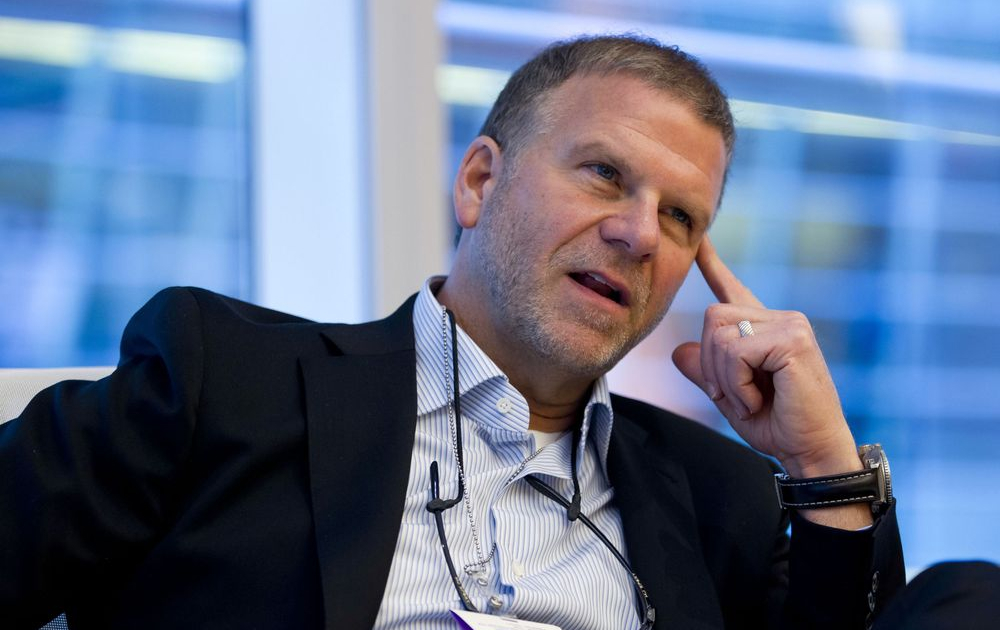
The bet was to spend $300 million to renovate the Fremont Street Golden Nugget and build a new tower, despite some classically bad timing. When the financial crisis struck in 2008, the ferocious downturn that followed impaled Vegas. The industry’s biggest company, Caesars Entertainment Operating Co., would eventually go under, weighed down by more than $20 billion in debt. Landry’s, too, had debt maturing in 2008–and lenders were evaporating.
But Fertitta proved to be one of the few in the industry who performed during the tough times. “Throughout the crisis, he did a remarkable job operating his company,” says Rich Handler, CEO of Jefferies Financial Group, the investment bank that backed him in refinancing the company’s debt. Fertitta would go on to buy three more casino properties, including the bankrupt Trump Marina Hotel and Casino in Atlantic City, all of which would be rebranded as Golden Nuggets. The casino division will produce $300 million in operating profits this year on revenue of $1.1 billion.
Two years ago, Fertitta made another highlight-reel acquisition. When his hometown NBA Houston Rockets became available, he directed Landry’s to write him a dividend check for $1.7 billion so he could fulfill a lifelong dream and buy the team. He had been a season-ticket holder for 40 years and at one point a minority owner. The price tag: $2.2 billion. To clinch the deal, he made a down payment of $100 million to then-Rockets owner Leslie Alexander. “I told him, ‘If I can’t close, the money is yours,’ ” Fertitta says.
He closed in 50 days, an NBA record for a franchise transfer. The price was an NBA record too. Told that he might have overspent by a couple hundred million, Fertitta’s response was: “What’s $200 million in 10 or 20 years?” He meant that the value of a modern NBA franchise goes in one direction-up.
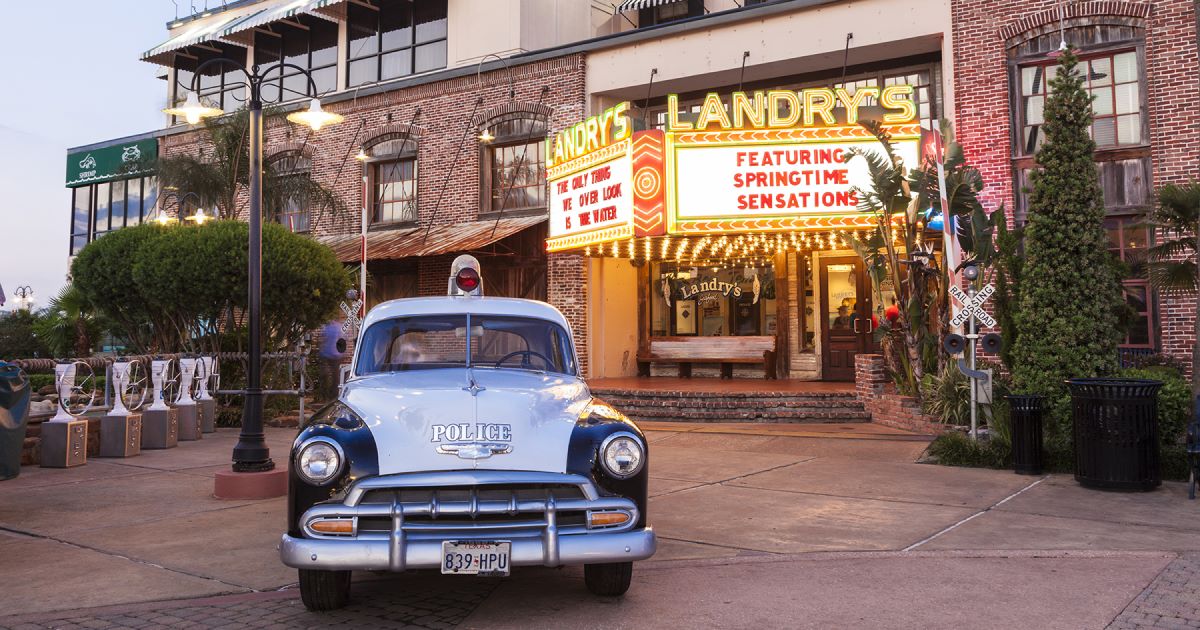
Bold moves such as buying the Golden Nugget and then the Rockets may give the impression that Fertitta, is bet-the-ranch Texas wildcatter. He certainly has the toys: a pair of Gulfstream GVs, two helicopters, and a 164-foot yacht called Boardwalk.
But the flash can be deceiving. Last October, he offered to buy the recapitalized Caesars, an audacious proposal given that his Golden Nugget casino hotels are still jacks compared with Caesars’ kings. When Eldorado Resorts offered $17.3 billion for the company, a deal he found too rich, Fertitta quickly folded. “I would have been gambling my whole company, and I have a pretty good program as it is,” he tells Inc. “When I was smaller, I took huge risks, but now that I’ve made it, I can’t do that.”
Following the Rockets acquisition, the company started grinding out its $4 billion in debt like a homeowner dutifully paying down a 30-year FHA mortgage, only in this case to the tune of $200 million a year. Fertitta’s goal is to make sure “the paddle does not hit my ass”- the unforeseen risk that can strike any entrepreneur. Avoiding the paddle, and taking advantage of companies that do not, has made the increasingly conservative Fertitta increasingly wealthy.
With the restaurant industry saturated and economic slowdown in the air, Fertitta is experimenting with new ways to finance deals. “We do not have the flexibility to do some of the things my dad relied on in the past,” says Fertitta’s son and aide-de-camp, Patrick, 25. For example, Fertitta and Jefferies filed an IPO for a special purpose acquisition company, or SPAC, which is a vehicle that can be used for anything–like, say, merging with another restaurant company.
In other words, if the economy goes south, Fertitta wants to be ready. he said, “I am worth $5 billion today because I am an opportunist.”
Fertitta believes he was put on earth to be an entrepreneur. As a kid, he said, “I never watched cartoons. I carried a briefcase.” Fertitta began working there in his teens and gradually mastered each piece of the operation, from the kitchen to the front of the house, until he could essentially run the place without adult supervision. He was, he realized, particularly adept at numbers.
He proved to be an early adopter. When video arcade games exploded in the early 1980s, he became a distributor of Pac-Man and other machines, splitting the take with local hotel, bar, and store owners. Decades later, he would be out front on online betting in his Atlantic City casino and quickly built a category leader. He also formed a construction company and built homes and small shopping centers as the Texas real estate market boomed, financed by easy money from local savings and loan companies.
He was $2 million in debt when the commercial real estate market toppled, begetting the savings and loan crisis of the mid-1980s. Though later that credit crunch would seem like small change compared with the Great Recession, every S&L in Texas failed. There was no lending, and no hope. But with the help of an attorney who worked for his cousin’s law firm, Fertitta renegotiated his debt on favorable terms. He then used everything from equipment leases to credit cards to get back in the game. “You could not borrow money in Texas for 10 years,” he says of the banking meltdown. The helpful lawyer, Steve Scheinthal, was so impressed by what he saw that in 1992 he quit the cousin’s law firm to work for Fertitta and has never left. Why? “Because he was dynamic, and he was brash, and he was a visionary,” says Scheinthal, who is now the company’s executive vice president. “He had ideas, and they all seemed to make sense.”
One good idea: They could compete with the dominant seafood restaurant brand, Red Lobster. After buying control of Landry’s and its sibling, Willie G’s, in 1986 from the Landry brothers and their partners, Fertitta set to building. There were some dud Houston locations, but eventually Landry’s–upscale but accessible–began to catch on.
What he lacked was a currency to fund growth. Red Lobster and the fast-growing Outback Steakhouse each had access to equity shares. So, in 1994, Landry’s went public. “I was doing $40 million [annually] and making $4 million,” Fertitta says. “You go public as a hot concept, and you wake up and you’re worth $100 million.”
A lot of entrepreneurs cannot adjust to public ownership or cope with the hyenas in Lower Manhattan. Fertitta proved he could play Wall Street hardball in a two-year quest that took the company private again in 2010 for $1.4 billion, as he fended off activist investors who accused him of lowballing the price. “He is one of those unique operators who understand capital markets as much as Wall Street does,” says Jefferies’s Handler.
That understanding has shaped the restaurant segment. In the aftermath of the recession, Fertitta played the great white shark in a sea of wounded seals, devouring chains ranging from tourist trap Bubba Gump to high-end steakhouses like Mastro’s. The company’s recipe: Buy restaurants with strong concepts and great locations but subpar execution and swiftly bring them up to Landry’s standards. That means, if necessary, a redesign, as with Morton’s, and no skimping on maintenance, which has always been one of Fertitta’s bugbears. “You’ve got to spend maintenance capex dollars,” he says. “That’s the best advice I can give anybody who operates a big company.”
The most recent pickup of a flailing competitor: the Del Frisco’s steakhouse chain, which Landry’s agreed to buy in late September for a reported $300 million. Explaining the opportunity, Fertitta says, “It’s a great brand and a poorly run company.” He will simply roll Del Frisco’s into his own well-oiled machine.
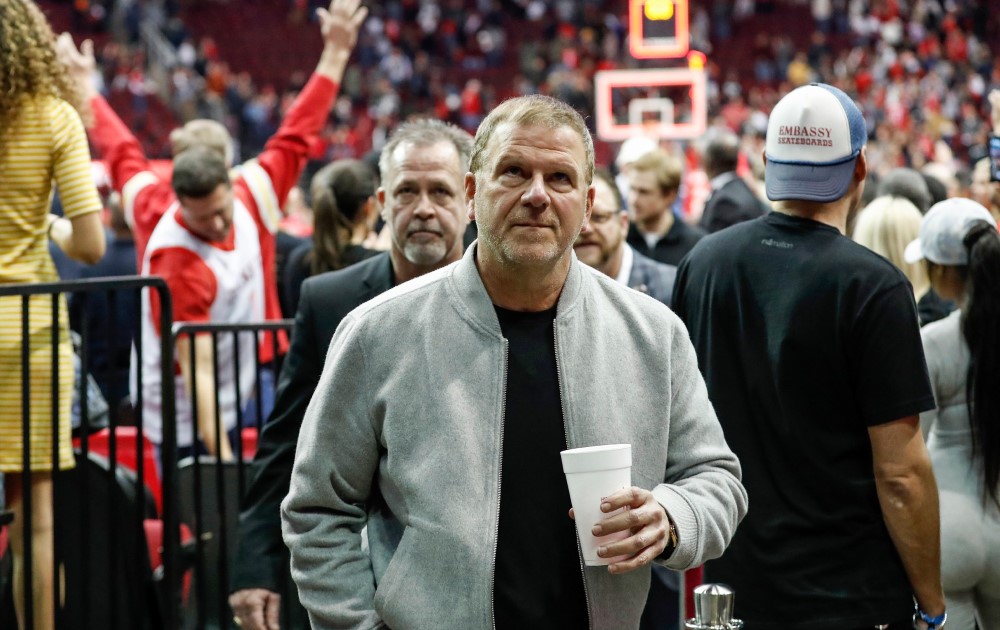
Fertitta is among the few industry CEOs who have held every restaurant job and studied every aspect of running a successful eatery. “You could not go to a restaurant with him and not be taught a lesson,” says Patrick Fertitta, “either from a server’s perspective, or the way a dish is prepared, or how a host or a hostess deals with a wait.” It galls Patrick’s father that CEOs of publicly traded restaurant companies could not so much as fold a napkin properly while being overpaid to underperform in the top job.
Although Fertitta votes for mass over class, his company will not run with commodity dining players such as Chili’s, Olive Garden, and Applebee’s, which spend heavily on promotions, or “buying the business,” as it is known. Across the industry, same-store sales are flat, a function of an increasing number of restaurants, so competition is heating up. “There are no spare customers” is a well-known Tilmanism. At places such as Willie G’s, the wait staff will treat you to a well-rehearsed dining experience, from the obligatory server introduction to the grand tour through the menu. Just do not expect any all-you-can-eat shrimp deals.
People who have been with Fertitta the longest will tell you that his strength is not a gambler’s gut instincts but a mathematician’s rigor in problem solving. He preaches one message consistently: Know your numbers. Unless you fully understand how you are making money or losing it, you have a hobby, not a business, and you are likely to fail. “If you don’t have a financial statement to go on, you are basically operating out of a cigar box,” he says. “You don’t know shit.” It seems like fairly prosaic advice, but if other companies had followed it, he probably would not be buying them.
Groundbreaking Lessons from Tilman Ferttita on How to Weather the COVID-19 Economic Crisis
Billionaire Tilman Fertitta’ hospitality and sports enterprise took about a 95% revenue hit when COVID-19 forced the closure of most of those businesses. He was forced to furlough 40,000 employees in order to try to stay afloat. The business which was incredibly successful prior to COVID-19, is now looking at negative cash flow every month and could end up in bankruptcy. What could Tilman Fertitta have done to manage this risk?
First off, there is no way to buy insurance against pandemics. It is not an insurable risk since someone selling it would have virtually every business file claims at the same time. Hindsight is 20/20, but there are a few things that Tilman Fertitta could have done to plan for a pandemic. Some of these are no-brainers, while others are just spaghetti on the wall ideas:
He could have invested in restaurant concepts that are more resistant to pandemics. Tilman Fertitta’s company is called Landry’s and is made up of a variety of restaurant and casino chains like Mastros Steakhouses, Joe’s Crab Shack, Rainforest Grill, Cadillac Bar, Golden Nugget and many others. He routinely acquires new brands for the portfolio. In the COVID-19 pandemic, many states are allowing take-out and delivery to continue but forcing restaurant dining rooms to be closed. While some of Landry’s brands offer take-out and delivery, they just are not the type of places that come to mind when you think take-out and delivery. A few non-Landry’s restaurant brands do come to mind like Domino’s Pizza, and black restaurants (75%+ delivery) and ghost kitchens (100% delivery – they have no storefront and only exist on apps like Postmates, Uber Eats, and Grubhub). One or more delivery-focused brands could have been acquired or developed.
He could have left more cash on the balance sheet. According to the Bloomberg article, Fertitta said he has enough cash to weather the storm for a few months. It is conceivably possible that instead of using the cash to acquire additional chains or increase dividends, more cash could have been left idle on the balance sheet.
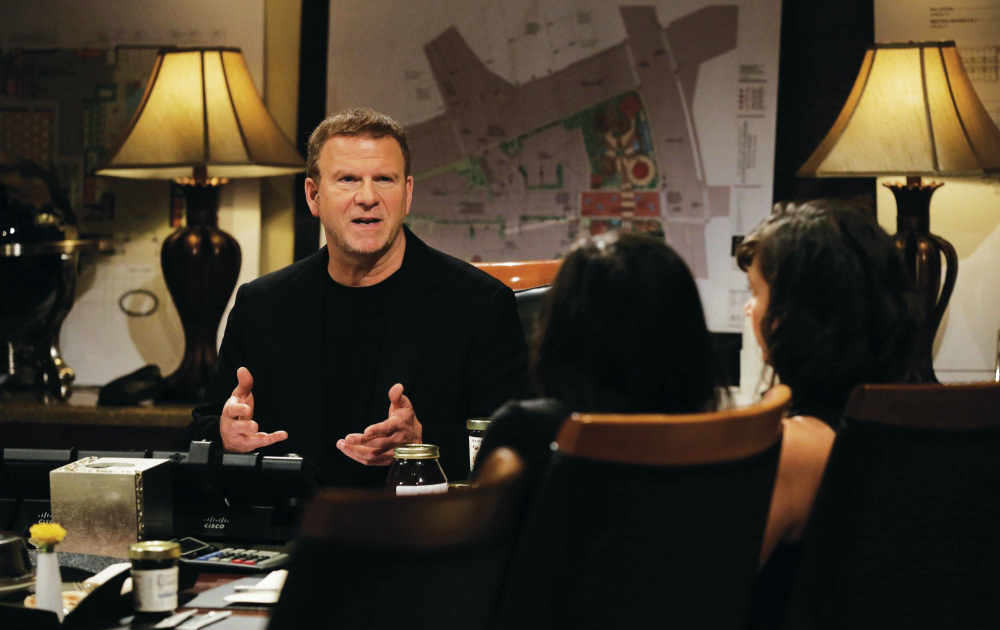
The Golden Nugget casinos could have leveraged their customer base to develop an online casino where people could place bets from anywhere. I am little skeptical if it would have made a difference because when people are dying around you, the fun and excitement of gambling goes by the wayside. Also, there are no major sports to bet on when all leagues cease playing games. Maybe it could have generated some revenue.
The company could have looked at itself as a conglomerate like Berkshire Hathaway and bought shares in stocks that stood to benefit from a pandemic. At least when the restaurant division of Landry’s got killed, the pandemic-resistant shares would have held their value or appreciated. This would be companies like Zoom Video Communications and Clorox.
The pandemic has not stopped quarantined people from drinking lots and lots of alcohol. Landry’s comes into contact with a lot of customers that drink wine. They had a wine-of-the-month type of club in place for a few years that shipped wine to 1,000’s of members. They could keep sending monthly wine deliveries and then amp up promotions and discounts during a quarantine to ship out wine like crazy.
Grocery stores have also done very well during the pandemic, with people buying and hoarding all sorts of food and supplies. Landry’s could have focused more energy on this segment, getting prepackaged foods like chicken with pasta into the stores. They could have been signature dishes from the various restaurants under the Landry’s umbrella. Same thing with Rainforest Grill; people go there for the experience more than just the food. Having a Rainforest Grill pasta available at Fry’s is not going to hurt restaurant traffic.
He could have offered to use his hotels as quarantine locations. This one is a tough one since you don’t necessarily want your high end hotels like The Post Oak or the San Luis Resort to be associated with a pandemic, but for his more middle market properties like the Holiday Inn Galveston, maybe there could have been in plan in place to lease it to FEMA to use as a quarantine site for patients that have little to no symptoms but still need to be quarantined.
He could have put aside money in the company or on his personal balance sheet, then bought Landry’s loans or bonds back at a huge discount. Landry’s bonds were trading at about 50 cents on the dollar after the pandemic hit. If he held left a substantial chunk of cash on the balance sheet, he would have been able to buy and retire those bonds at a huge discount, at least eliminating some debt service.
On locations that were leased, he might have been able to get away with putting a pandemic rent deferral option into leases. American society as a whole completely underestimated pandemics prior to COVID-19. With a big-name tenant like Landry’s signing the lease, a landlord might have gone along with something like this if they underestimated the likelihood of it ever happening.
The company could place a rolling a bet on credit default swaps (CDS) like hedge fund manager Bill Ackman did. He turned a $27 million bet into $2.6 billion because the probability of investment-grade and high yield bonds defaulting increased substantially in a short period of time. The economy had been doing great for so long and spreads between safe assets and riskier assets had gotten so compressed, that some type of downside protection for a hospitality company would have made a lot of sense.
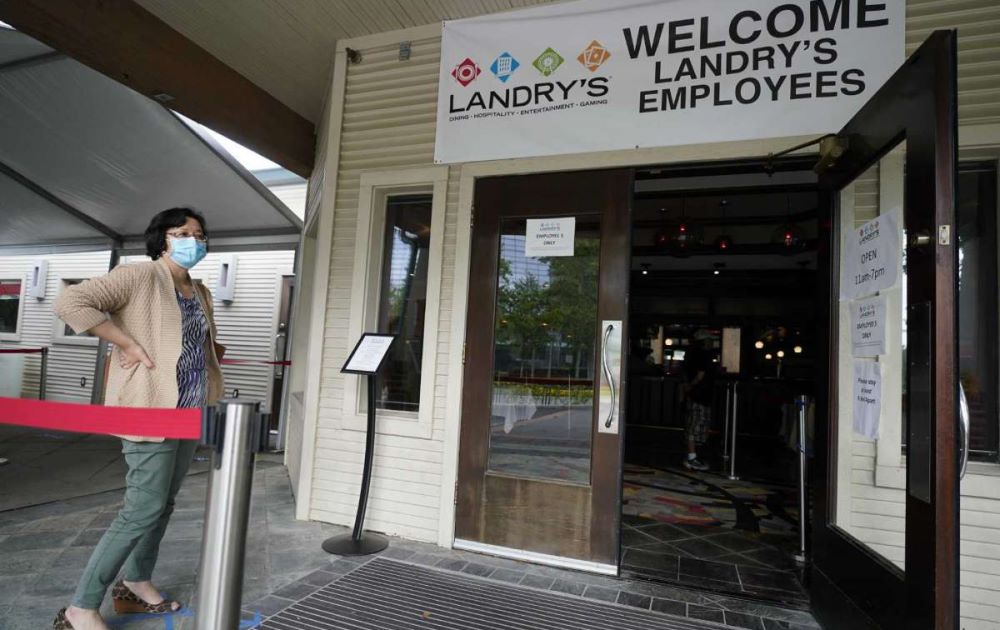
Now that the pandemic has hit Landry’s, Tilman Fertitta is scrambling to stop the bleeding. Government bailouts lease re-negotiations, layoffs, changing marketing and operations to be more quarantine-friendly and delivery-friendly, and even selling deeply discounted gift cards may be part of the solution. Short of a perfectly time bet like Bill Ackman’s, most of the other moves would not have been total game-changers. However, they could have at least slowed down the bleeding.

